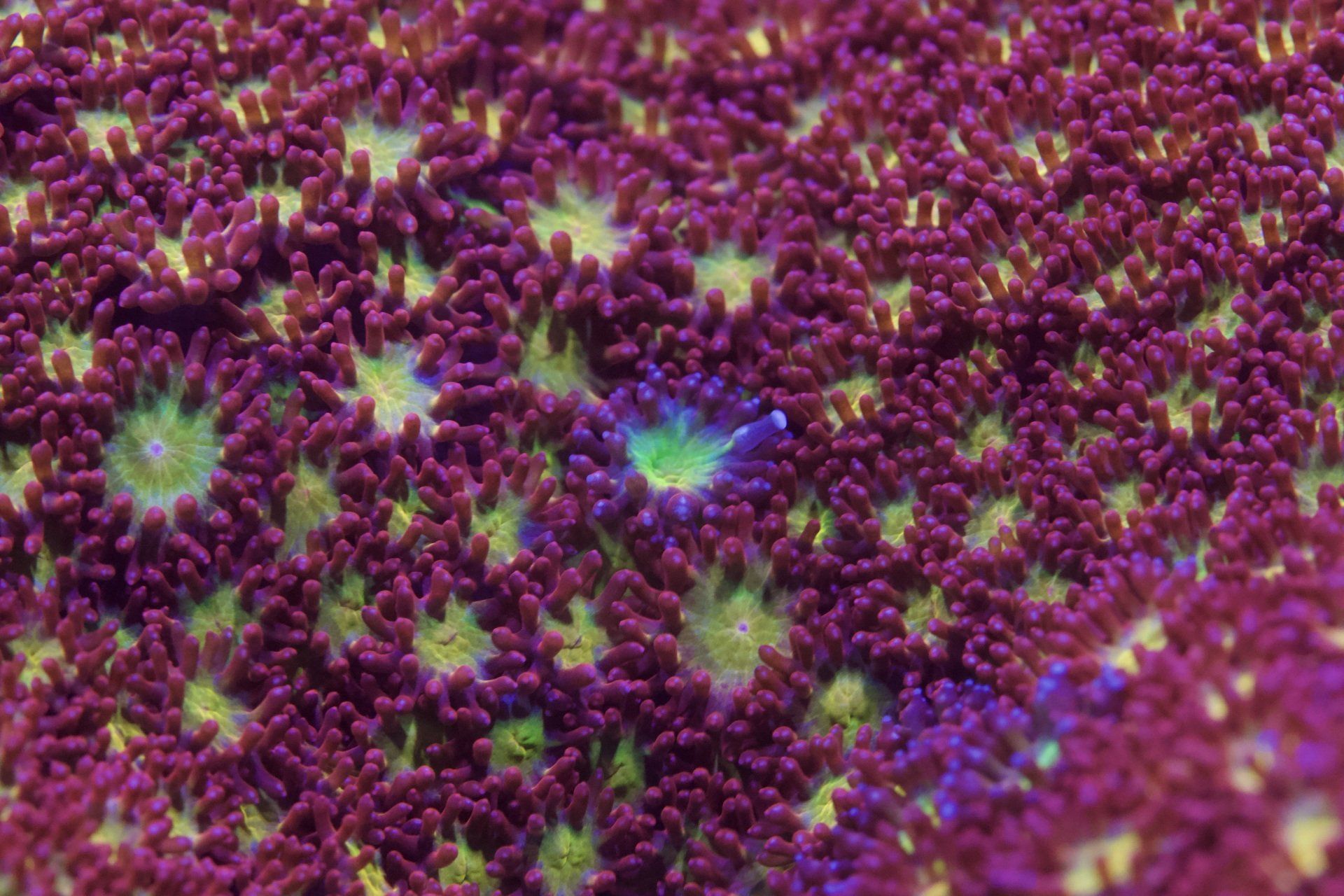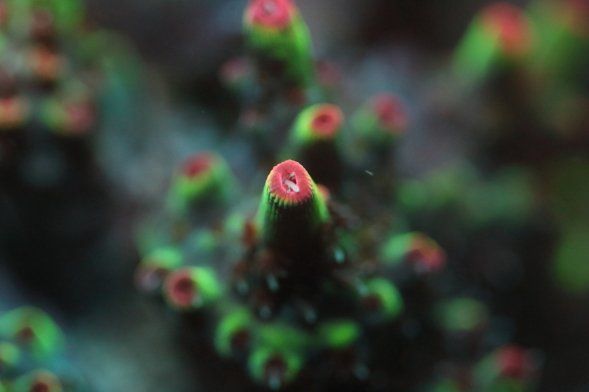Frag Farm was born from a love of coral and all things 'reefy'. Inspired by the massive progress of coral propagation in the US, it was time for the UK to have an equivalent coral farming facility to increase the diversity and quality of frags available to the trade.
Based in leafy Buckinghamshire, Frag Farm is housed in a custom-built, air-conditioned and de-humidified building with approximately 150ft2 of lit growout space.
We specialise in SPS corals but also have a growing selection of ultra-grade LPS that reside in a dedicated 15ft growout system.
From the outset, our philosophy was to sustainably farm a large amount of coral where the vast majority of what we sell is 2nd generation coral grown in the UK. Many other 'farms' import large amounts of coral and cut them up, known in the trade as 'chop shops', that is not what we are about. A very significant part of the farm is dedicated to brood stock colonies that provide the source for our frags.
As of early 2020 there are over 2000 individual distinct corals in our care. We continuously refine our collection by adding the most exquisite and rare corals that we can source from around the world,
Why buy farmed coral?
Environment
The most obvious reason to buy farmed coral is clearly the ecological benefit of reducing the impact of the hobby on the reefs. In light of bleaching events on the reef there is no doubt that there will be increased pressure on countries and governing bodies to reduce the amount of coral exported in the coming years as more concerns are raised about the health of our oceans and other natural resources. As a consequence, locally produced, farmed coral should take a larger percentage of the coral supplied to the trade as the costs of imports increase while costs of farmed coral (due to scale) decreases. Other factors include the amount of packaging needed to ship coral - a large amount of poly bags, polyboxes and cardboard are all a by-product of shipping coral. The aviation costs are increasing each year and imports come with a sizeable carbon footprint as heavy boxes full of seawater are shipped around the world. Some estimates suggest that to bring 3 boxes of corals (of an average of 25kgs each) requires 400-500Kgs of aviation fuel to import; given that a large body of scientists and institutions suggest that carbon dioxide is the primary cause of coral bleaching it is disconcerting that by exporting coral we are contributing to the root cause of the bleaching.
Resilience and health
The shipping of coral when exported is particularly stressful for these beautiful animals that inevitably leads to a percentage of casualties in transit. Stressed coral will most often look pale when unpacked (but quite often still coloured); when unpacking a coral quite often the bag will have a brown film on its sides or be brown and cloudy. This is the sign of a stressed coral that has ejected a large amount of zoothanthellae; this vital algae provides the food source that the coral needs to recover. As a result, a further percentage of an import can decline in the first week in a wholesaler or retailers tank where the conditions may not be ideal e.g. it is vital that a coral that has ejected zoothanthellae is not placed in full light- the algae provides a vital sunscreen for the coral. Of course the unsuspecting hobbyist buys these corals a day or two after they were imported and wonders why they die so rapidly once in their tank.
When buying farmed coral the colony has already gone through an acclimatisation to aquarium conditions and recovered its algaes within its tissue. This includes adjusting to aquarium chemistry (which is very different to the sea), artificial salt mixes and artificial lighting, a differerent photo period, temperature and food sources, This means the resilience of a farmed frag is far greater than wild or maricultured coral and as a consequence a hobbyist buying aquacultured frags is far more likely to build a successful tank with significantly less losses.
Pest Free
It is surprising just how many pests can be found on freshly imported corals. Farmed corals that have been subject to a rigorous quarantine procedure are far less likely to introduce damaging pests to your aquarium,
Variety
All coral farms focus curating and culturing the best possible examples of a coral and to grow it to exploit maximum colouration. Quite often these corals are rarely available to import but farming gives a chance for the average hobbyist to acquire some of the most beautiful and sought after specimens.
At Frag Farm we have over 2000 distinct corals, our focus is to retain only the best corals that exhibit maximum colour and attractive structure.
Colour and Growth
Since the advent of maricultured coral we often see a wide variety of intensely coloured corals presented in our local fish stores. Often these corals have been 'baked' in fairly shallow seas that creates a very intense colouration. Once in aquarium conditions the average hobbyist will most often struggle to maintain such colouration.
Some unscruplulous exporters will stress coral before shipping to force the coral to eject algaes within its tissue; often this is done with a very light copper poisoning, which is highly toxic to the coral, but leaves behind an intensely coloured coral due chromo proteins being visible through the tissue. The resulting coral is very delicate and unwell once placed in an aquarium and chances of recovery are diminished unless it has very good conditions.
Farmed coral, on the other hand, has been coloured in aquarium conditions. A coral only reaches good colouration if it is growing well and is receiving the right balance of macro, micro and trace elements. A coral stabilised and coloured in captivity is far more likely to retain its colour and vibrancy as it is used to LED lighting and general aquarium conditions and salt mixes. Feedback we have received from numerous hobbyists have confirmed this.



